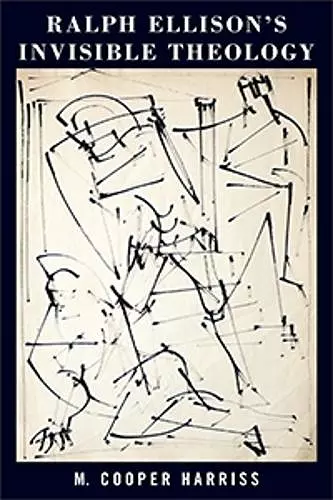Ralph Ellison’s Invisible Theology
Format:Hardback
Publisher:New York University Press
Published:2nd May '17
Currently unavailable, and unfortunately no date known when it will be back

Examines the religious dimensions of Ralph Ellison’s concept of race
Ralph Ellison’s 1952 novel Invisible Man provides an unforgettable metaphor for what it means to be disregarded in society. While the term “invisibility” has become shorthand for all forms of marginalization, Ellison was primarily concerned with racial identity. M. Cooper Harriss argues that religion, too, remains relatively invisible within discussions of race and seeks to correct this through a close study of Ralph Ellison’s work.
Harriss examines the religious and theological dimensions of Ralph Ellison’s concept of race through his evocative metaphor for the experience of blackness in America, and with an eye to uncovering previously unrecognized religious dynamics in Ellison’s life and work. Blending religious studies and theology, race theory, and fresh readings of African-American culture, Harriss draws on Ellison to create the concept of an “invisible theology,” and uses this concept as a basis for discussing religion and racial identity in contemporary American life.
Ralph Ellison’s Invisible Theology is the first book to focus on Ellison as a religious figure, and on the religious dynamics of his work. Harriss brings to light Ellison’s close friendship with theologian and literary critic Nathan A. Scott, Jr., and places Ellison in context with such legendary religious figures as Reinhold and Richard Niebuhr, Paul Tillich and Martin Luther King, Jr. He argues that historical legacies of invisible theology help us make sense of more recent issues like drone warfare and Clint Eastwood’s empty chair.
Rich and innovative, Ralph Ellison’s Invisible Theology will revolutionize the way we understand Ellison, the intellectual legacies of race, and the study of religion.
HarrisssRalph Ellisons Invisible Theologyprovides a suggestive, learned, and accessible entrance into Ellisons life and work which creatively appraises the theological significance of Ellisons thought while also contributing to conversations on race, religion, and secularism as well as religion and literature. * Reading Religion *
Harriss offers a deeper interpretation by exploring the religious implications of Ellison's characterization of race as invisible and its theological significance for a secular age. * Catholic Library World *
Harrisss book is an impressive accomplishment reflecting careful thought, patient research, and well-crafted writing. It deserves a wide audience among teachers, students, and fans of Ellison, as well as others who hope for more sophisticated political discussions about history, identity, and race. * Christian Century *
Centering on Ralph Ellisons Invisible Man, this book may be read as a case study into what opens up when one refuses the opposition between the sacred and the secular, between religion and the profane, when approaching black cultural productions. Black social life moves in the break(down) of these divisions, enacting intramural practices of an alternative sociality. The importance of this text lies in its taking up of such matters by way of Ralph Ellisons work. Inviting a consideration of America as a settler-colonial project of religious and secular, if not theological, purity, Ellison is cast as forging an underground 'invisible theology' of an unseen blackness that works through and against the grain of Americas original sin: race/ism. Not to be missed, this text joins the fray of an emergent conversation regarding black social life's 'paratheological' conditions -- J. Kameron Carter,Duke University Divinity School
In this wide-ranging analysis, incorporating everything from biblical texts to Puritan sermons, from the Harlem Renaissance to mid-century political theologians to contemporary debates, M. Cooper Harriss excavates the 'lower frequencies' of Ralph Ellison's central metaphor of invisibility. He shows how Ellison injects race into contemporary discussions of secularism, and in the process illuminates much not just about Invisible Man, but about how race orders the American cosmos. -- Paul Harvey,author of Christianity and Race in the American South: A History
Each chapter brings Ellison into conversation with other thinkers to show a religious lineage to his thinking while also tackling a chronological period or particular theme...Harriss offers an intriguing way to rethink what religion looks like--even when it's invisible--in America. * Publishers Weekly *
ISBN: 9781479823017
Dimensions: unknown
Weight: 544g
288 pages